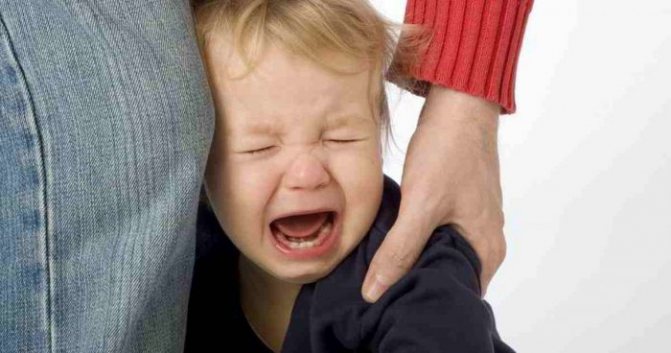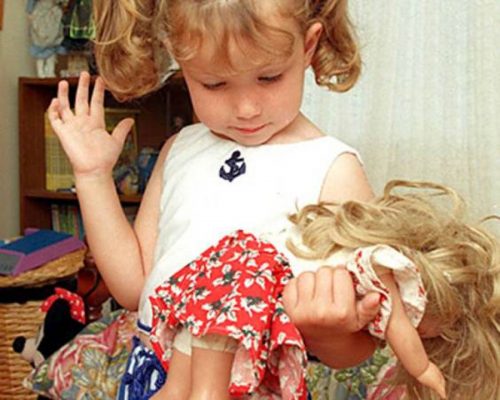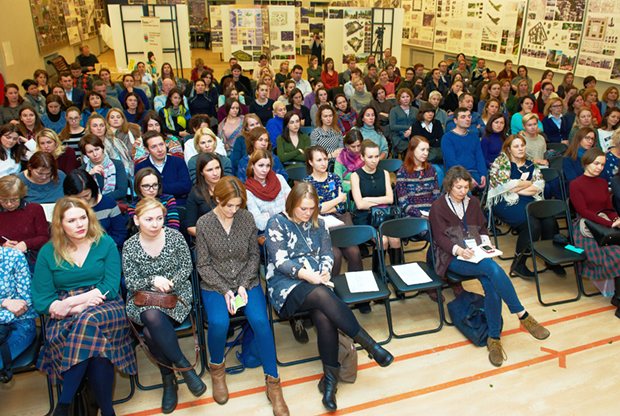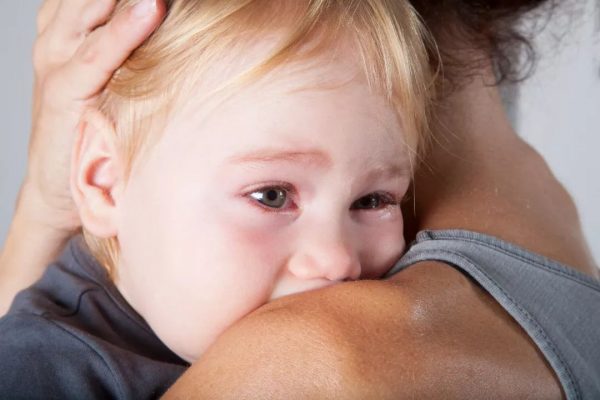There is no special law in Russian legislation that explains whether parents have the right to use “physical” methods to raise their child. At the same time, Article 63 of the Family Code of the Russian Federation obliges parents to take care of the physical health of their child.
In criminal law, a situation where a person is beaten is classified as battery or harm to health, as well as torture.
For each such act, criminal punishment is imposed. The commission of such actions by parents against children is an aggravating circumstance of the crime.
In modern realities, the ubiquitous guardianship quite often interferes with the process of raising a child. Parents may be accused of raising their child inappropriately, taking poor care of him, or beating him.
In this situation, parents can be helped by a lawyer involved in interaction with guardianship authorities.
Scientific research
Many parents associate disciplining children with spankings, slaps on the head, or hitting them on the lips. This is not a rod or a belt, but lightly - for the purpose of prevention.
And sometimes your hands themselves itch when a hysterical child does not hear the words and strives with all his might to get what is his. This is so annoying that we don’t think about the consequences of our actions, or rather, we firmly believe that we will calm them down and put them in their place. But is it?
The question of whether it is possible to hit children has become the topic of many scientific studies. Naturally, their result gives an unambiguous and categorical answer - no. But let's move on to the dry facts that confirm the thesis.
University of Missouri Research
Psychologists, sociologists, and statisticians from the University of Missouri, led by G. Carlo, conducted a long-term study. They closely monitored the lives of 1,850 families for 10 years.
They tracked parenting methods and their consequences starting from the age of one and a half years. The next control point is 3 years. Then - 10 years.
During the work, not only parents and older children were surveyed, but also teachers. Scientists came to families' homes and schools.
The results of many years of research are disappointing:
- children exposed to regular punishment in infancy are more aggressive;
- their nervous system is unstable, they are prone to increased irritation;
- The children's behavior did not change (disobedience and poor academic performance).
Research by Texas Scientists
Scientists at the University of Texas, led by E. Gershoff, worked with statistical data from more than 80 studies on the topic of children's punishment. In their work, they gave several more reasons why children should not be beaten.
Punishments have long-term consequences. In addition to increased aggressiveness, children who received regular spankings (and no “serious” spanking) had low self-esteem. They were prone to antisocial behavior.
Relations between grown children and parents were tense. Or they did not communicate at all on the initiative of the children.
Research by Arab scientists
Another interesting study was conducted in Saudi Arabia. It was found that physical punishment in 70% of cases increases the risk of developing asthma, cancer, and cardiovascular diseases.
For each disease, the groups consisted of more than 150 people. Control group (healthy people) – 250 people. Everyone who was part of the groups with a certain disease was subjected to mental and/or physical abuse from their parents in childhood.
How does a small child feel during physical punishment?
Psychotherapists have proven that a child feels fear and shame during physical punishment. Regular and prolonged experience of these feelings leads to stimulation of the amygdala.

The child is in a state of chronic stress. It negatively affects not only mental but also physical health. First of all, the immune system and nervous system suffer.
Ultimately, the baby does not know how to react to stress; fear dulls his sensitivity. The principle begins to take effect - so what, it doesn’t hurt me. Such emotions of a child are another argument why you should not hit children on the butt and not only on it.
Psychologists have found that even shouting and death threats have a negative impact on the child. It is very difficult to cope with your emotions in a crisis situation, and you start shouting at the baby: “Now you will get it from me”!
Fear of possible punishment and uncertainty are stronger than fear of pain. As a result, the child becomes aggressive. You begin to feel like he is provoking you. As a result, you lose your temper and spank the baby.
It turns out to be a vicious circle. The longer this goes on, the less the baby trusts you. Attachment, the key to the normal development of the child’s psyche, collapses.
Parents about punishment
- By spanking a child, you teach him to fear you.
- By showing the worst traits of your character in front of your children, you are setting a bad example for them.
- Corporal punishment requires less intelligence and ability from parents than any other educational measures.
- Spanking can only confirm, but not change, a child's behavior.
- Punishments make the child fear losing parental love. He feels rejected and begins to be jealous of his brother or sister, and sometimes even of his parents.
- A punished child may develop hostile feelings towards his parents. And as soon as two feelings unite in him: love and hatred, a conflict immediately arises.
- If you spank a child under pressure, this means that you have less self-control than you require from your child.
- Frequent punishment encourages the child to attract the attention of the parents by any means necessary.
How spanking affects the entire education process
Beating children for educational purposes has been considered normal throughout almost the entire history of our country. If in Tsarist Russia this was considered a common thing, acceptable in the Soviet Union, then in the 21st century they increasingly say that such a phenomenon is absolutely unpedagogical.
How does violence affect the education process?
- The child understands that aggression is normal. That this is how all problems and disputes are resolved. All the words of mom and dad that it is bad to beat the weak, torment animals, and humiliate other people will not be heard. After all, the behavior of parents proves the opposite. And children tend not to listen, but to imitate significant adults. And the question of how long an adult raises his hand against a child will be significant.
- Even when you simply spanked a child with your palm, you humiliated him. The baby feels unloved, rejected, wrong and unworthy. All this leads to the formation of self-doubt and complexes.
- Physical punishment is not effective in the educational process. At first, the child will obey out of fear. But the fear will quickly pass, and the baby will begin to cheat and lie. Trust will be destroyed, which will no doubt affect adolescence.
- By raising your hand to a child, you are admitting your own powerlessness. This undermines parental authority and humiliates you.
Spanking children is not only uneducational, but also ineffective.
Children who have been subjected to physical punishment from an early age exhibit worse behavior than their peers.
Why do we raise our hand to our child?
Some parents still believe that physical punishment is the only effective way to educate. As a rule, these are people with patriarchal, outdated views on life.

After all, a large number of scientific studies have confirmed the ineffectiveness of such measures.
Some do this unconsciously. They themselves received a strap on the butt. They take out their grievances against their parents on their children. Or violence has become so commonplace for them that they do not consider it shameful to do so.
Often spanking and slaps on the head become the only way out when a parent feels powerless. The mother is so tired and exhausted, but the baby again does not obey.
She loses control of the situation and a slap in the face turns out to be the only way out. But it is precisely such tired women who are acutely worried about their actions. And just as much as the child, they need help.
Parents who are dissatisfied with life stand apart. More often these are men who use their children as the only source of self-affirmation.
It is they who, having hit a child, will experience pleasure and a sense of self-importance. They are fueled by the baby’s fear and despair. In this pathological case, outside intervention is necessary.
“There is only one exact recipe for education - don’t hit children on the head”
Mom and work
Question: The child is 2.5 years old and he always cries when his mother leaves. Is this normal? Can this be mitigated somehow?
Answer: A child is two and a half years old and should be unhappy that his mother is leaving, this is normal. Any child under 3-4 years old wants his mother to always be nearby. He has a right to be upset. There's nothing wrong with that, because you'll console him later when you come. You can start preparing him for these separations in advance, little by little. But it is important that this dose is feasible for him. For example, if a mother goes on a business trip for a month, this will be too much for a two-year-old child.
Question: I am a working mother, my son is 4 years old, I went to work when he was two. My son wants me to spend all my free time with him. And when? Work on weekdays, on weekends you need to clean up and go to the store. Is there any way I can improve the quality of time I spend with my child?
Answer: This is the problem of all working mothers - you need to work, and the child needs you. Here it is not so much about increasing the quality of time, but about helping the child understand and experience his feelings about you leaving. We must feel sorry for him because he is bored. Give him some of your things so that he can walk around in your robe, for example. Leave some surprises for him, notes, bring gifts. All this will make separation easier for him.
Question: Could it be that I am traumatizing my child by working?
Answer: Well, of course, we traumatize children every day. Because we go to work, because we don’t allow cartoons, and so on. We all get injured all the time, it's not the end of the world. And children, while growing up, are injured all the time. The whole question is that these are microtraumas. If you don’t lose contact with your child, then it’s okay. He can survive this and gradually adapt.

Brothers and sisters
Question: I have two children, my son is one year old and my daughter is three. I am alone at home with them almost 24 hours a day. My daughter always asks me to play with her. That is, from morning to evening she literally sticks to my leg and waits for me to free myself. It turns out that I refuse her all the time - after all, I need to cook dinner and feed my son. What should I do?
Answer: This situation is familiar to many; it is associated with urbanization, as a result of which mothers and children found themselves locked at home. Never in her life had a young mother with a child or two been left alone. The rich had servants, the poor had large families. And now we don’t let the child go out alone. Families have become small - mom is alone, dad is at work. And it turns out to be a hellish situation - the child is incredibly bored, he wants to play with you because he has no one else to play with. But mom can’t afford to play, she has no time. Besides, she's also bored out of her mind. It is unnatural for a grown woman to play the games of a three-year-old. You need to think about how to find her the company of other children. Well, for example, agree with your friends that your children will take turns coming to play with one family or another.
Question: I have two sons, 3 years old and 8 years old. The little one is a bully and always provokes the older one. How should parents react - intervene or let them figure it out themselves?
Answer: If you start interfering, then you will continue to understand their relationship until adulthood. If this is not part of your plans, then it is better to avoid the role of an arbitrator. Feel sorry for the victim and that’s it.
Grandmothers and other relatives
Question: Grandma often says unpleasant things to my three-year-old daughter: “You are so ugly when you cry” or “Your hair is so thin” or “Your brother is better because he eats well.” How much can a grandmother traumatize a child with such statements?
Answer : Children's dependence on grandparents is an order of magnitude less than on their parents. If the grandmother is just a monster and the child feels bad with her, then yes, there is no need to leave the child with such a grandmother. If the grandmother “messes up” on little things and the child is happy, it’s okay.
Question: My daughter is 11 years old, she is surrounded by many relatives. I began to notice that she was trying to guess what emotions were expected of her. Even if she doesn’t like something, she tells her grandmother: “Oh, how cute, I’ve been dreaming about this for a long time.” It turns out that I hardly see the real her lately. Can it be left like this or not?
Answer: Unfortunately, this is now a fairly common occurrence. When everything in families is built on empathy, compassion, then sensitive, empathic children fall into a trap because they do not want to upset adults. But at the same time, they feel that their real feelings and emotions are, as it were, prohibited. It's good if they can communicate with peers and get healthier communication there. If there are also no healthy relationships with peers, I would think about some kind of camp with a psychological component - role-playing games, to learn to be aware of your feelings. She needs outside help.

Teenagers and lack of motivation
Question: My son is 14 years old and is in 9th grade. He is completely refusing to go to school - he’s not interested, I don’t want to, he’s absenteeism, and so on. He is not interested in anything except the computer and hanging out with friends. He can't even say what he will do after 9th grade. What should I do?
Answer: 14 years old? No way. 9th grade is not for you, but for the child. Need to decide where to go next? Necessary. Ask him this question. The question was asked - parental duty was fulfilled. Let him think, he still has time. The more you think for him, the less he will think. Tell him: “Darling, you are 14 years old, whatever you decide, that’s what we will do.” It's too late to resolve these issues for him.
Question : My eldest daughter is 13 years old. She doesn’t want to do anything at all, not homework, nothing. She has no motivation.
Answer: Well, who at 13 wants to do homework? The child has the right not to want. An honest conversation begins when we recognize this right for the child. Not wanting to do homework, not wanting to go to boring school is normal. There is no need to try to motivate him to do all this. We need to join him, say - I understand how you don’t want to. And then we can help the child learn to “swallow a frog.” How to help? For example, tell how you yourself deal with things that you don’t want to do. Or give something tasty to sweeten the pill.
Question: My teenage daughter doesn't seem to need anything. So we were planning to go somewhere, I said: “Come on, do your homework and let’s go.” Five hours pass and nothing is done. The daughter says indifferently: “Okay, we won’t go.” Even the threat of taking the phone away doesn’t work: “Okay, okay, take it.”
Answer : Refusal of all claims and desires is an extreme form of protest for a child. Often this indicates that the child feels too controlled and that too much is expected of him. And then you just need to step away, say: “This is your life, you live it as you want, if anything happens, shout.”
Question: The child is 12 years old. It seems that now he is only interested in computer games. What to do - limit it, not limit it, or remove it altogether?
Answer : The whole question, it seems to me, is whether he communicates with his peers in real life or not. Does he have friends in the yard? Does he play football? If not, I would think about adding some kind of live communication into his life. Come up with a situation where he discovers playing with his peers. Take him to the village, for example. So that he understands that there is still something in life, that you can just play football. Expand his vision.
Question: The child only wants to lie on the sofa with the phone. That's all. How to remove it from this plant state?
Answer: This is how his refusal to live by your rules manifests itself. When you are an active principle, you are the source of all motivations, desires, and decisions. The more you jump around it, the more it closes. Leave him, let him know that you won’t pick him out of there. You know, I am often asked how to survive a child’s adolescence. So, I have three pieces of advice for parents: sex, work, alcohol (laughter in the audience). Mind yourself, your own affairs.

Question: But you understand, we are afraid that the child will spend his whole life on the sofa.
Answer: I understand that you are afraid. But the more you are afraid, the more they lie. This is a mechanism of codependency. When a person feels that someone is living his life and is too worried about him, he begins to defend his subjectivity. It’s good if it’s active, when he says: “Fuck you!” And when there is no strength for active resistance, he begins to defend himself passively. Closing in and out.
Question: If we leave the child alone and don’t pester him with unpleasant things, won’t it turn out that a person will grow up who will not be able to fight difficulties? In what situations do you need to insist, overcome, and where can you relax and say - if you don’t want to, don’t?
Answer: In life there is always something that needs to be overcome - getting home when you’re tired, going outside when it’s cold, waiting for your mom to get home from work. That is, greenhouse conditions still won’t work. Therefore, it is strange to create them artificially. Life already consists of difficulties, there is no escape. If he is able to overcome, support him. If not, leave me alone.
In order not to miss anything useful and interesting about children's entertainment, development and psychology, subscribe to our channel on Telegram. Just 1-2 posts a day.
How to stop without hitting a child
Before spanking your child, try to pull yourself together. Yes, it is difficult when emotions and lost control take over the situation. Psychologists advise doing the following before hitting a child on the bottom:
- Leave the room, lock yourself in the bathroom or toilet. It is important to avoid eye contact. Fear in his eyes strengthens the work of the parent’s amygdala, making it more difficult to calm down and pull himself together.
- You can drink water in small sips and breathe deeply.
- It helps to take a balloon and inflate it.
- Close your eyes and imagine a cloudy shore, a blooming spring garden, a snow-covered park and how you are having fun there with your baby.
- Any meditation technique will help.
Moms in a state of prolonged stress or postpartum depression should try to devote at least a little time to themselves.
Ten minutes of cartoons a day will not harm your child, but will help you regain peace of mind.
An alternative to spanking
There is no need to try to be the perfect parent from the picture. Allow yourself anger, fatigue and other emotions. Talk about them with your child. Explain why you did this. Don’t consider it shameful to apologize to your child.

Psychologists recommend the following alternative methods to physical punishment and spanking on the butt:
- Explain to your child the consequences of the action, why it is so bad to do. Examples from cartoons and fairy tales work well.
- If the baby’s life is not in danger (he doesn’t stick anything into a socket, doesn’t lean out of the window, doesn’t try to run across the road), let him understand from his own experience what his behavior is fraught with.
- If the child is hysterical, its acute phase, give him the opportunity to yell. Even in a public place. This will require gathering all your strength into a fist so as not to react to people passing by and delicately asking them not to interfere. When the hysteria subsides, hug him.
- Place the child in a corner. Calculate the time based on his age. A minute for a year of life.
- You can send an excessively naughty baby to another room.
- Deprive him of cartoons or games on the tablet, a trip to the entertainment center, or sweets. Something without which its development will not suffer. You shouldn’t “take away” your hobby as punishment.
Don't threaten in vain; if you promise, do it. This way you can create clear boundaries.
Never bargain with your child, do not let him manipulate you.
Battering a child
The easiest situation is beatings, which, according to Article 116 of the Criminal Code, are qualified as “violent actions that caused physical pain, but did not have consequences even in the form of slight harm to health.”
Now let’s decipher what all this has to do with parents and their children. The interpretation of the concept of “physical pain that has no consequences for health” can be quite broad.
Since it is not indicated how severe the pain can be, a slap on the bottom or an attempt to restrain a child by pulling his arm can, if desired, be classified as beating.
In practice, in order to open a case, it is necessary for the child to report such “beatings” inflicted by his parents. To do this, he can contact either the local police officer or by telephone to the local guardianship authorities. Relatives and neighbors can give a similar signal.
In this regard, parents are afraid that the child, offended by the spanking, may report to the police. And children who like to manipulate their parents may claim beating, even if there was no spanking.
When the question arises about a mother or father beating their child, the investigating authorities, as a rule, require the presentation of bruises, scratches or other physical signs of violence.
The problem is that most children have bruises or abrasions as a result of their physical activity, and not at all from violent actions. And it is not possible to identify exactly how they appeared. In case of doubt, the police and guardianship take the side of the child.
For the first case of beating their child, a parent will be held administratively liable under Article 6.1.1. This is fraught with a fine of 5 to 30 thousand rubles, arrest for 10–15 days, or community service for 120 hours. For the second case, criminal punishment is up to 2 years in prison. In addition, guardianship may consider depriving parental rights.










